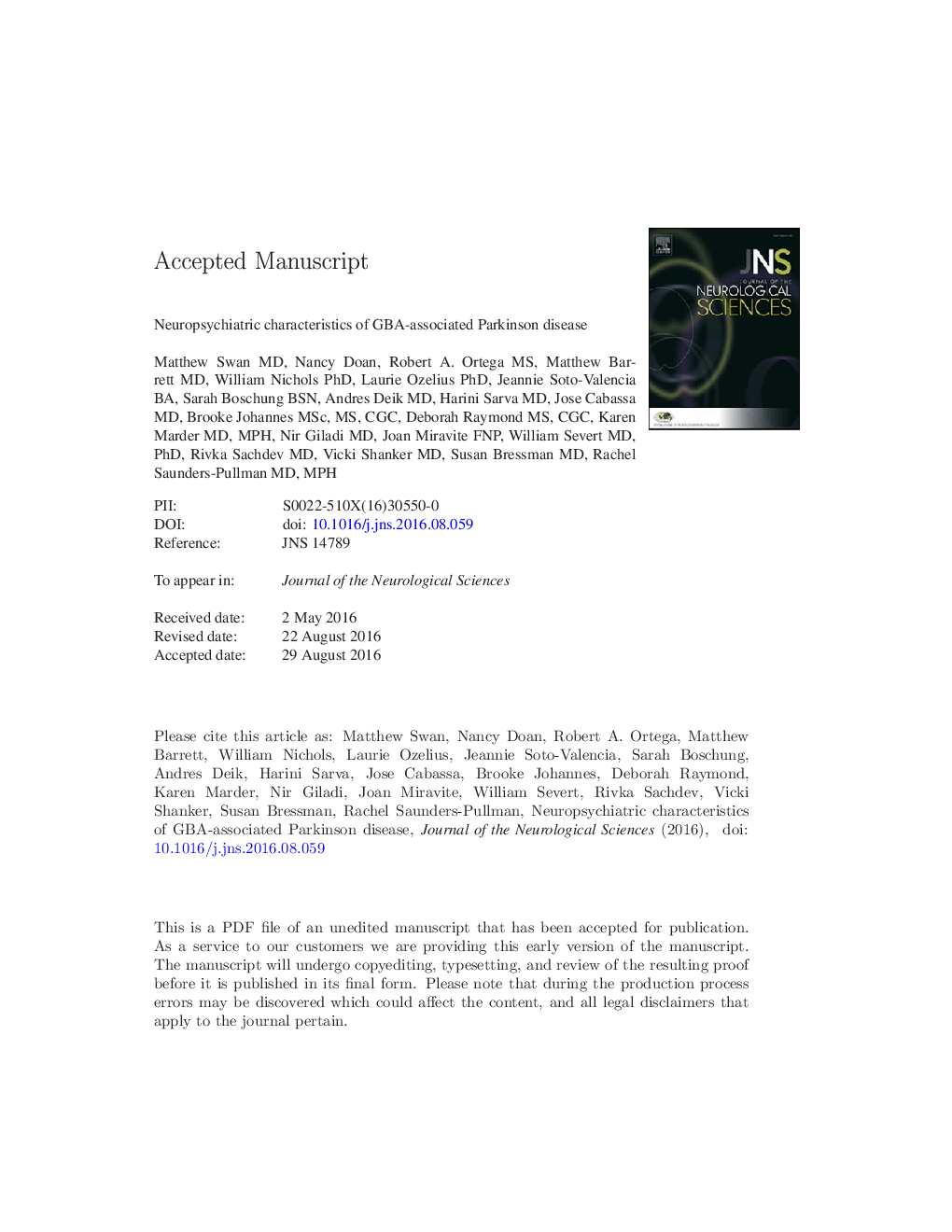| Article ID | Journal | Published Year | Pages | File Type |
|---|---|---|---|---|
| 5503120 | Journal of the Neurological Sciences | 2016 | 26 Pages |
Abstract
Mutations in GBA1 are a well-established risk factor for Parkinson disease (PD). GBA-associated PD (GBA-PD) may have a higher burden of nonmotor symptoms than idiopathic PD (IPD). We sought to characterize the relationship between GBA-PD and neuropsychiatric symptoms. Subjects were screened for common GBA1 mutations. GBA-PD (n = 31) and non-carrier (IPD; n = 55) scores were compared on the Unified Parkinson Disease Rating Scale (UPDRS), Montreal Cognitive Assessment (MoCA), Beck Depression Inventory (BDI), and the State-Trait Anxiety Index (STAI). In univariate comparisons, GBA-PD had a greater prevalence of depression (33.3%) versus IPD (13.2%) (p < 0.05). In regression models controlling for age, sex, disease duration, motor disability, and MoCA score, GBA-PD had an increased odds of depression (OR 3.66, 95% CI 1.13-11.8) (p = 0.03). Post-hoc analysis stratified by sex showed that, among men, GBA-PD had a higher burden of trait anxiety and depression than IPD; this finding was sustained in multivariate models. Among women, GBA-PD did not confer greater psychiatric morbidity than IPD. These results suggest that GBA1 mutations confer greater risk of neuropsychiatric morbidity in PD, and that sex may affect this association.
Related Topics
Life Sciences
Biochemistry, Genetics and Molecular Biology
Ageing
Authors
Matthew MD, Nancy Doan, Robert A. MS, Matthew MD, William PhD, Laurie PhD, Jeannie BA, Sarah BSN, Andres MD, Harini MD, Jose MD, Brooke MSc, MS, CGC, Deborah MS, CGC, Karen MD, MPH, Nir MD, Joan FNP, William MD, PhD, Rivka MD, Rachel MD, MPH,
